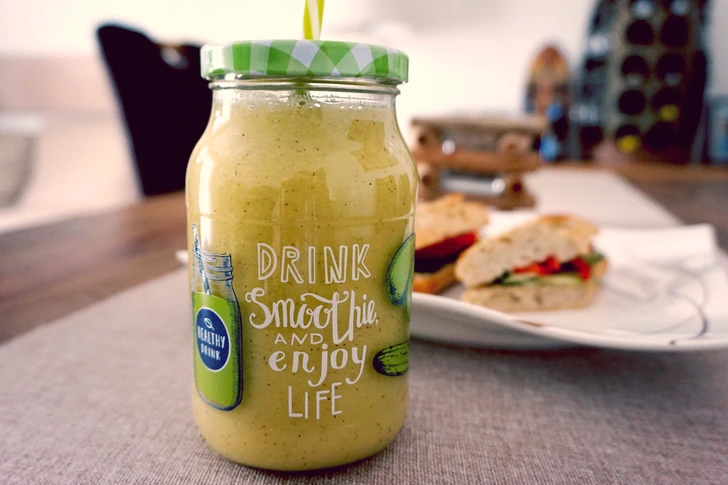The debate about rinsing canned beans and vegetables has been around for ages. Some people, like my uncle, argue there’s no need to rinse and prefer to use them straight from the can, liquid and all. Others, especially health-conscious cooks, insist rinsing is essential to reduce sodium and remove preservatives. So, who’s right? Let’s explore the facts and settle this culinary question.
Understanding the Canning Process

Canning is a method of food preservation that locks in freshness by sealing food in airtight containers and subjecting it to high heat. This process eliminates harmful bacteria, ensuring the food remains safe to eat for long periods. The liquid inside the can plays an important role. It helps maintain the food’s texture, enhances flavor, and keeps it fresh.
For canned beans, the liquid is thick and starchy, while canned vegetables are often packed in a salty brine. While this liquid is safe to consume, it’s worth considering whether it’s always the best choice for your recipes or dietary goals.
The Potential Risks of Not Rinsing
Using canned goods straight from the can might seem convenient, but there are some potential drawbacks to consider.
- Excess Sodium: Most canned beans and vegetables are preserved in liquid with a high sodium content. Eating them without rinsing could lead to consuming more salt than recommended, which may not be ideal for those managing their blood pressure or overall sodium intake.
- Preservatives and Additives: Many canned goods contain additional preservatives, sugar, or flavoring agents. While these additives help preserve the food, they may not align with everyone’s dietary preferences or health goals.
- BPA Concerns: Although many manufacturers have switched to BPA-free cans, some still use BPA-lined packaging. BPA, a chemical linked to potential health risks, can leach into the liquid, raising concerns for some consumers.
Skipping the rinse might seem harmless for some people, but it’s important to weigh these risks against your health and flavor preferences.
Nutritional Impacts of Rinsing
Rinsing canned beans and vegetables has nutritional benefits, but it also comes with trade-offs.
- Reduced Sodium: Rinsing can reduce sodium levels by as much as 40%, which is a significant benefit for anyone looking to cut their salt intake.
- Loss of Nutrients: Unfortunately, rinsing also removes some water-soluble vitamins and minerals, such as vitamin C and B vitamins. If canned vegetables are your primary source of these nutrients, rinsing could slightly diminish their nutritional value.
Ultimately, the decision to rinse or not depends on your priorities. Are you trying to reduce sodium, or are you focused on retaining as many nutrients as possible?
Expert Opinions on the Rinsing Debate
Nutritionists and chefs often have differing opinions about whether or not to rinse canned goods.
- Health Experts: Many health professionals recommend rinsing canned beans and vegetables to lower sodium and remove preservatives. This is especially important for individuals with specific dietary restrictions.
- Chefs: On the other hand, chefs often use the canning liquid to enhance flavor and texture in recipes. The starchy liquid from canned beans can help thicken soups or stews, while the brine from canned vegetables might add a subtle, savory touch to certain dishes.
The decision to rinse or not often comes down to personal preference and the type of dish you’re preparing.
Does the Type of Canned Good Matter?

Not all canned goods are the same, and the type of food can influence whether rinsing is necessary.
- Canned Beans: Beans are often packed in a thick, starchy liquid. Rinsing reduces sodium and removes some starch, which can alter the texture of your dish if left unwashed. For recipes where texture is crucial, rinsing is usually a good idea.
- Canned Vegetables: Vegetables are typically preserved in a lighter, salty brine. Rinsing can effectively reduce sodium while having minimal impact on the texture or flavor.
Understanding these differences helps you decide when rinsing is worth the effort.
Practical Tips for Rinsing Canned Goods
If you choose to rinse, here’s how to do it effectively to get the best results.
- Use a Colander: Pour the beans or vegetables into a colander to make rinsing easier.
- Rinse Under Cold Water: Run cold water over the canned goods for 30 seconds to a minute, ensuring all surfaces are cleaned.
- Toss Gently: Shake or stir the contents in the colander to remove excess liquid and ensure even rinsing.
- Dry If Needed: For recipes that require dry beans or vegetables, use a clean towel or paper towel to pat them dry after rinsing.
- Inspect the Can: Before opening, check for dents, bulges, or rust, which could indicate spoilage.
By following these simple steps, you can enjoy canned goods while minimizing sodium and preservatives.
Conclusion: To Rinse or Not to Rinse?

The rinsing debate doesn’t have a one-size-fits-all answer. Rinsing canned beans and vegetables offers clear advantages, such as reducing sodium and removing additives, but it can also wash away some nutrients. For health-conscious individuals, rinsing is generally the safer choice. For those prioritizing flavor or using the canning liquid in recipes, skipping the rinse might work just fine.
So, is my uncle right? Well, it depends on the dish and personal preferences. Whether you rinse or not, canned goods are a convenient and versatile pantry staple that can save time and enhance your cooking. The key is to make an informed choice based on your dietary needs and the flavors you want to achieve. After all, cooking is as much about creativity as it is about following the rules.


